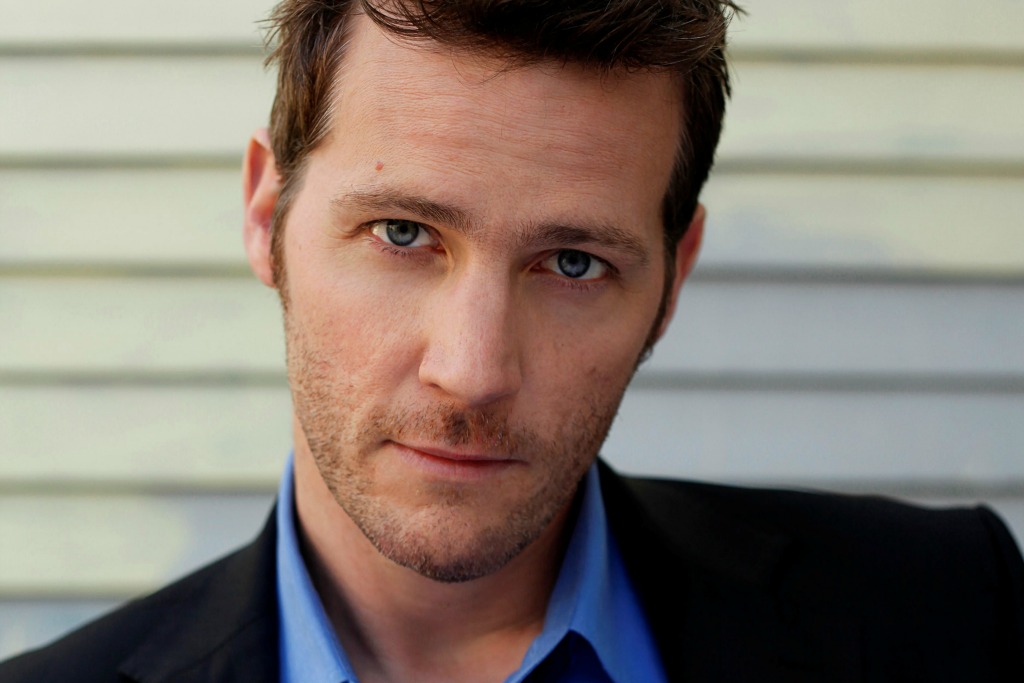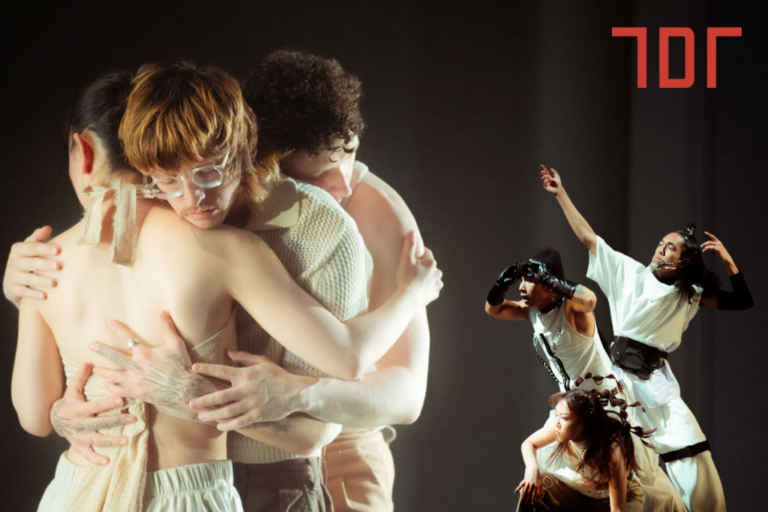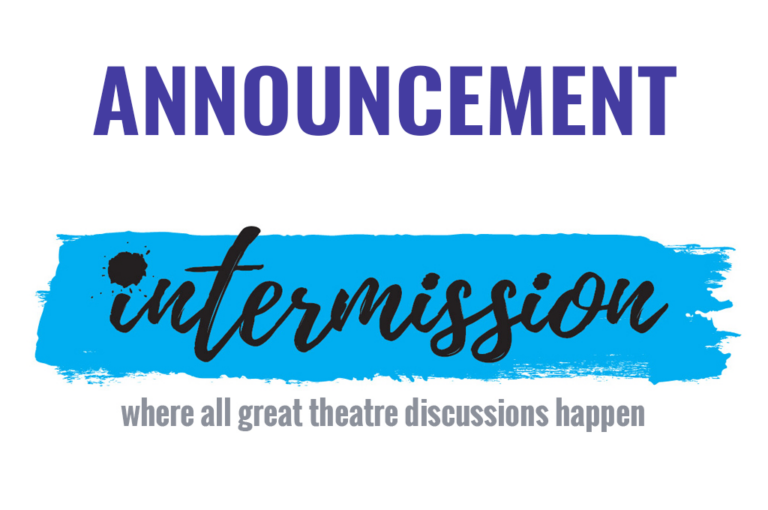In Conversation: Graham Abbey
Graham Abbey is a Shakespeare nut. He’s been acting in the Bard’s plays for decades, and in 2011 he founded Groundling Theatre, a company devoted to productions of Shakespeare’s plays “as well as works inspired by Shakespeare.” Last year, their highly-acclaimed production of The Winter’s Tale won a Dora Award for Best Independent Production of the Year.
As he prepared to remount it this year, along with a new staging of Measure for Measure, Abbey spent a lot of time thinking about gender and politics. As the whole world deals with the fallout of a new American president who, among many other reprehensible acts, has bragged about sexually assaulting women, Abbey sees Measure—about an authoritarian politician who tells a novice nun that he will behead her brother if she doesn’t have sex with him—as a piece that can tell us a little bit about where we are now. We chatted with him about Shakespeare, politics, and “making Vienna great again” just before the shows opened.
Why Shakespeare?
I moved to Stratford when I was very young with my mom and my sister, and I got immersed in the theatre. I was ten years old when I did my first play at the Stratford Festival. I fell in love with the poetry and the language; I enjoyed the rhythms. I used to recite it in my spare time. I was a strange child. I think that’s how I got it into my bloodstream, and my heart.
At significant moments in my life, Shakespeare’s always given me solace and understanding. It’s almost my therapy. Fortunately or unfortunately, I played Hamlet right after my father passed away. I did Cymbeline right after my best friend died from cancer at a very young age, and I found great understanding in that play, too—a play about the possibility of someone coming back from death, somebody you thought you had lost. It comes down to what Meryl Streep said the other night, quoting Carrie Fisher: take your broken heart and turn it into art. Shakespeare’s served that best for me throughout my entire life.
On the Shakespearean villains in the news right now
Measure for Measure is so much about misogyny and patriarchy and that abuse of power. If you look at America right now and who they voted for, they seemed to want someone, to use Trump’s own words, “to drain the swamp.” You’ve got somebody coming in who, very much like [Measure for Measure villain] Angelo, has been brought in to bring law and morality—perceived morality—back to the world. It’s not as extreme as Measure, but it has that echo. And the question becomes: where can that go? I’m not making any comment about where America may go, but, certainly, it tells one story of when that can possibly go awry. I never ended up doing it, but I wanted to have signs in this play saying “Make Vienna great again.”

The other very real thing in Measure for Measure is related to headlines we see every day. The most prominent, recently, is the Jian Ghomeshi case. And there’s Robin Camp, the judge who said to the woman to close her legs, or something. But we see those headlines every day. The language in Measure for Measure blows me away—that sounds pretty wanky—but we all know Isabella’s “to whom should I complain” speech. When she finally gets the bravery and the strength to speak in public, in that beautiful scene where she cries for justice, but she doesn’t get justice —and in fact is accused of being put up to the whole thing. She has a beautiful line where she says: “Is this all?” I said to Michelle [Giroux] and others in the cast: there’s no doubt people who watch this play right now are going to know what that is. Either personally, or they’ve seen it. It’s not dissimilar to what happens in cases four hundred years later, with rape or abuse: when women are brave enough to speak out about it, they’re told, it’s your fault. They, in fact, are put on trial. And that does happen in Measure: the table is turned on Isabella, and she finds herself at the centre of this instead of Angelo, the man she’s accusing. And I find that a remarkably modern mirror to what happens now.
On making a directorial debut with a “problem play”
I’ve been an assistant director several times, but my only directing credits so far have been Winter’s Tale last year and Measure this year. Certainly, these plays are very difficult to parse out. Measure for Measure is an elusive one—it doesn’t have a linear path. Winter’s Tale does in a way, although it gets into problems at the three-quarter mark. But it tells a linear story. Measure is more of an enigma. I’m learning. You learn these things as you sort of watch it go.
I like to create a collaborative room as a director. And lots of the people in the room are ones I’ve done plays with as an actor, so I have the ability to be an outside eye on this. I’m helping to shape the whole piece, but I’m also in there with them trying to figure out the beats and the posts, as we carve out these scenes. But if I were doing a lighter play, or a lighter Shakespeare, I don’t think I would treat it any differently.

Brent Carver and Michelle Giroux in Measure for Measure. Photo by Jason Cipparrone
The Stratford artifact that changed the game
Stratford has in its archives a hard copy of Measure for Measure with the cut that every director at the Festival has made in the play’s history. There have been about six productions at Stratford, and the hard copy is colour-coded so you can see what Robin Phillips cut, what Michael Langham cut, and so on. I had done my own cut, at first, and then went back to the cast and said, well, Phillips cut this, why did he do this? And we had a real deep analysis of the text with the help of some really great heads who have passed on but whose brains are still on the page. It felt like they were sitting at the table with us.
Encountering Shakespeare skeptics
For anybody who’s involved in bringing Shakespeare to life, we face the challenge of skeptics. My answer is—and no one’s got the answer—but my attempt is to say, what happens if we focus on the language, if we invest our work and time in infusing that language with thought and clarity, with great actors speaking in an intimate space? Can we make these stories accessible? I’ve seen the other route, and in certain cases that works too, where we sort of bury it in an event, so you feel like you’re not watching a Shakespeare play when you are. That has its moments of success, but my attempt with Groundling so far is: what if we just make it simple storytelling?
Last year in the Coal Mine space [when we did The Winter’s Tale for the first time], I had so many testimonials from young people who said it was the first time they had seen Shakespeare, both because it was accessible price-wise and because they could sit up close to some of our country’s greatest actors. So our attempt to keep it relevant and real seems to be working. I don’t claim that for all young people it’s their thing, but for a certain segment, it is their thing.
We’ve only had three previews in our new space at the Winter Garden. Last night a family with two young girls came and sat in the groundling stools. I couldn’t help but watch them throughout, to see if the young girls were getting it. And they were leaning right in, and by the end they were in tears.

Charlie Gallant and Sarena Parmar in The Winter’s Tale. Photo by Michael Cooper.
Working on “darker” plays
Measure, in particular, is a play that lives in a slightly unsettled place for a long time. The actors feel it. I feel it. We’ve learned to just kind of embrace it, and sit in it. In something like A Midsummer Night’s Dream, there’s a lot of laughs, and there’s contentment. Measure for Measure stays unsettled all the way through and it deals with fairly dark matter, which is always taxing for a cast. And to be doing two shows at once adds even more to that.
I’m artistic directing a company in a brand-new space and directing two problem Shakespeares at the same time, with a cast of heavyweight actors. So to say I’m tired is an understatement, but in the best of ways. I’m happily exhausted. But I joked with them—I said, next year I’ve got to pick something like A Midsummer Night’s Dream. I’ve got to go the light route. We’ll see. I’m addicted to the tragedies, quite frankly. I just love diving into them.















Comments